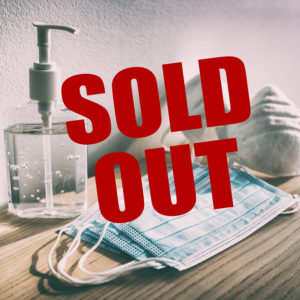President Trump and his trade adviser Peter Navarro are considering rolling out what they’re calling a “Buy American” provision in response to the coronavirus crisis, restricting the federal government and federal agencies from sourcing medical supplies and pharmaceuticals from allies around the world.
As countries around the world work together to develop the best steps for a response to the coronavirus, walling the United States off from supplies and treatments that work in other countries would harm American patients who need it most.
From the pandemic’s inception, America has struggled to access sufficient ventilators, personal protective equipment (such as masks and gloves), and test kits to keep the coronavirus in check.
Imposing a misguided “Buy America” directive would greatly exacerbate the supply chain issues that American healthcare workers are already struggling with on a daily basis.
More than 270 economists, including Nobel laureates and former members of the White House Council of Economic Advisers, signed a letter to the White House opposing Buy America regulations.
“The variety, supply and price of goods available to Americans will suffer under a broad Buy America regime,” they wrote. “Taxpayers and patients will pay more for drugs and medical supplies.”
Generally speaking, trade restrictions are an economic issue — and here as well, forcing American businesses and individuals to pay more for needed medical supplies due to an artificially constricted market would have an economic cost.
But in a pandemic, when every extra ventilator or N95 mask delivered into the hands of the healthcare workers that need them could potentially save lives, “Buy America” rules would have a larger human cost than trade restrictions imposed in ordinary times.
Advocates of “Buy America” restrictions would argue that curbing imports of medical supplies is the only way to create the conditions necessary for American producers of pandemic supplies to expand their own production.
In this case especially, however, there is hardly a need to use such blunt objects as tariffs to create enough demand for the country to ramp up production of medical supplies.
After all, the critical shortages the country is facing has already created many unlikely medical supply producers.
Industries around the country that have little to no background in producing medical supplies have been shifting production to face down the crisis — car and aircraft manufacturers are producing ventilators, apparel and athletic equipment companies are churning out masks, distilleries and breweries are making hand sanitizer, and more.
Trade restrictions would simply create further supply chain issues that would make it more difficult for these rapid manufacturing shifts to be as productive. And while trade restrictions would be enough of a self-inflicted wound, the countries targeted would be unlikely to take them in stride.
Likely retaliation would further inhibit the country’s ability to produce the supplies we so badly need. A fight to the death is the worst time to tie one hand behind your back.
Americans deserve better than to be subjected to Navarro’s crusade for trade barriers at a time when essential healthcare workers are going to work without access to enough masks.
There are lessons to be learned from the pandemic, including the need for more extensive stockpiling and the importance of eliminating outdated regulations that prevented earlier and more extensive implementation of potentially useful response tools such as telemedicine.
But reacting to a critical supply shortage by imposing arbitrary restrictions on medical supply imports would be the worst possible reaction. And as the letter from a broad cross-section of American economists shows, the experts agree on this.

